The views expressed in our content reflect individual perspectives and do not represent the authoritative views of the Baha'i Faith.
I am currently involved in a project called “Making Poverty History,” and in the process of working on it, I have been investigating the root causes of poverty.
The film “The Gods Must Be Crazy” is as insightful today as when it was made in 1980, and it offers us at least some of the explanation of poverty’s origins.
In the film, a community of Kalahari Bushmen is thrown off-balance when a Coke bottle is tossed out of a small plane and lands in their village. Before that moment, everyone had everything they needed; they knew how to live in their own environment and with each other. But suddenly, there was a Coke bottle, something they had never seen before and frankly didn’t know what to do with.
RELATED: The Poor Are the Trust of God in Your Midst
Thinking of it as a gift from the gods, they found that it could be handy. Gradually, the bottle changed from novelty to toy to tool and even into a weapon. Since there was only one Coke bottle, for the first time, the Bushmen experienced lack, unfairness, and deprivation. They soon became a community with “haves” and “have-nots.” They were no longer content.
Drawing on the metaphor from this film, it seems that we now have a world in which too many people lack Coke bottles. A sufficient number of Coke bottles exist; there are just too many in some places and not enough in others.
I recognize that individual circumstances, choices, and talents will result in a range of lifestyles. My concern here is with the extremes of poverty and wealth. A world with homelessness and hunger, with wars started over a patch of land or a trickle of water — these symptoms of extreme imbalance, immoderation, and injustice have an important message to tell us.
The Coke bottles in today’s world are not fairly distributed because of the absence of worldwide agreement, which itself stems from disunity. Instead, we have prejudices and greed. Thus, people are prevented from helping themselves, from helping neighbors, and from helping nameless strangers. The Baha’i teachings tell us that we must unite to find ways to end poverty:
A financier with colossal wealth should not exist whilst near him is a poor man in dire necessity. When we see poverty allowed to reach a condition of starvation it is a sure sign that somewhere we shall find tyranny. Men must bestir themselves in this matter, and no longer delay in altering conditions which bring the misery of grinding poverty to a very large number of the people.
Poverty is a global phenomenon, including in the so-called “developed world.” From homelessness in cities and towns across the country to unemployed suburbanites, no place is exempt.
In less-developed parts of our world, people are capable and resourceful, but the obstacles to their economic development are vast. Surely, we want to help them overcome these barriers through sharing of knowledge and resources.
Most approaches to solving poverty emphasize factors such as geography, politics, distribution logistics, and economics. I agree that on a practical level, these challenges must be solved, but they don’t get to the source of the extremes of poverty and wealth — unless they are guided by a concern for justice.
Writing about root causes and permanent solutions to poverty in their Human Rights and Extreme Poverty statement, the Baha’i International Community pointed out that:
The economic relationships of a society reflect the values of its members … Until justice is valued over greed, the gap between the rich and the poor will continue to widen, and the dream of sustainable economic growth, peace and prosperity will elude our grasp.
On a personal level, every individual can help to create a world with increased unity of vision, where justice and fairness — rather than the cold metrics of market-based economics, short-term solutions, or materialistic self-interest — are the bases for policy. We can do this through being informed, engaging in activities directed toward these goals, and sharing our own material resources.
I have read about many items and methods that cost very little (relative to today’s Western standards) yet can accomplish so much. For example: a straw-like device that allows individuals to filter their own drinking water; and bed-sized mosquito netting to reduce exposure to malaria, which threatens more lives than HIV/AIDS in many places. Both offer long-term benefits and costs about the same as a single lunch at a mid-range restaurant in the US or Canada.
RELATED: Wealthy People: Give Voluntarily to the Poor
If I believe that we are all one human family, then other people’s poverty is my problem, too. The pervasiveness of poverty is a reminder to think and think again. Do I need this or that item, or could I give more generously to charity? Do I buy items that benefit the person who made or grew them?
Charles Dickens gave us yet one more reminder to think past our own immediate surroundings. In his encouragement to extend the idea of charity to the level of justice, he reminded us to think beyond ourselves when he said: “Charity begins at home, and justice begins next door.”
I feel fortunate that I am not living in poverty. Being conscious of my own habits is one step in helping others feel that way. Another step is to realize that having the means for daily living also means having enough to share — lovingly, consciously, and consistently.
You May Also Like
Comments



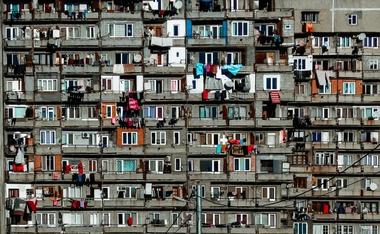


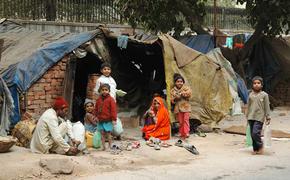





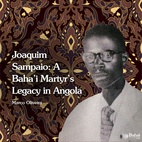
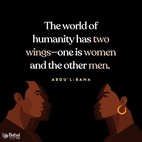
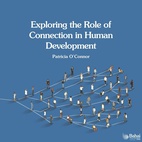


"Progress and Poverty: An Inquiry into the Cause of Industrial Depressions and of Increase of Want with Increase of Wealth: The Remedy is an 1879 book by social theorist and economist Henry George. It is a treatise on the questions of why poverty accompanies economic and technological progress and why economies exhibit a tendency toward cyclical boom and bust. George uses history and deductive logic to argue for a radical solution focusing on the capture of economic rent from natural resource and land titles.